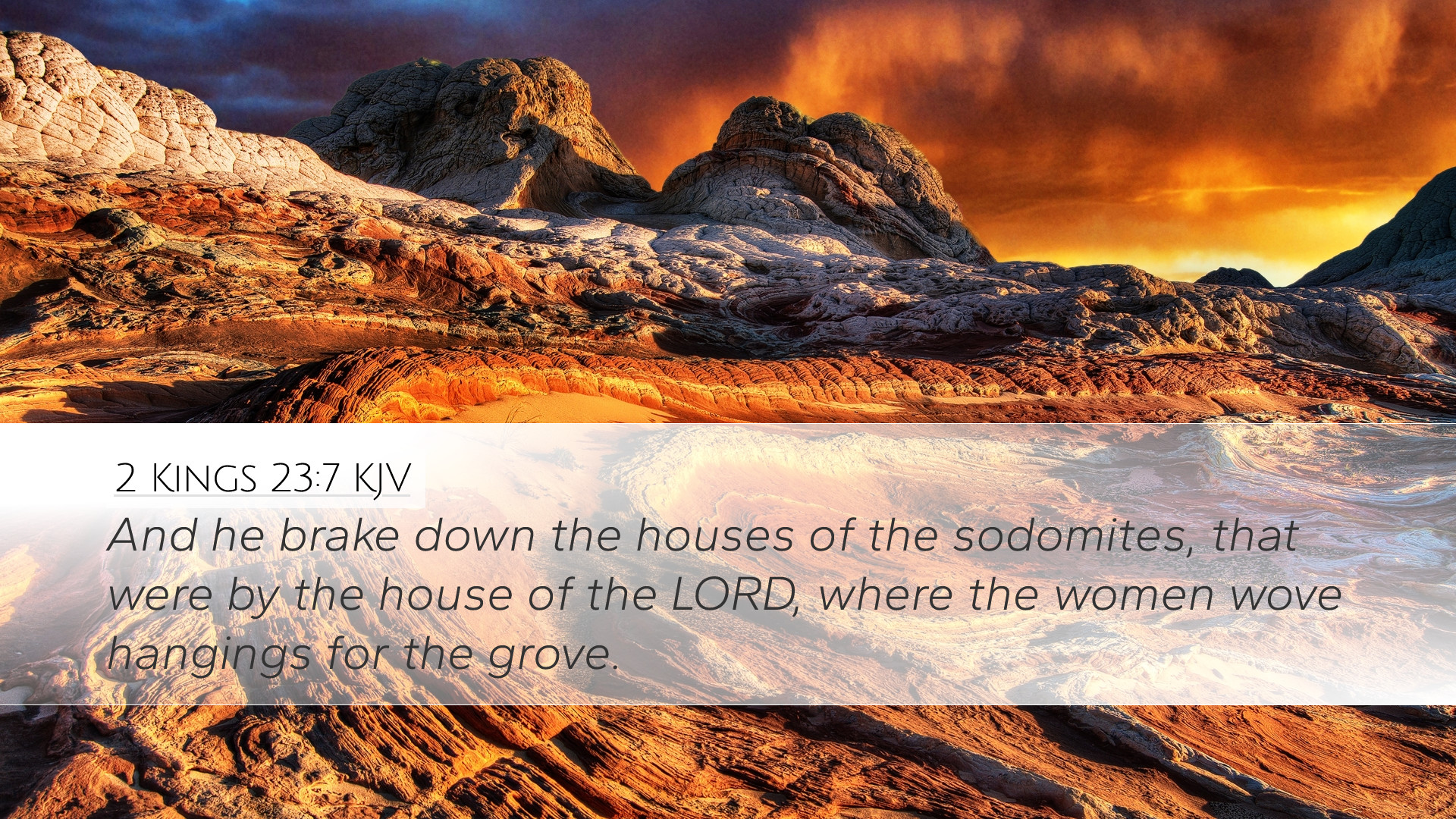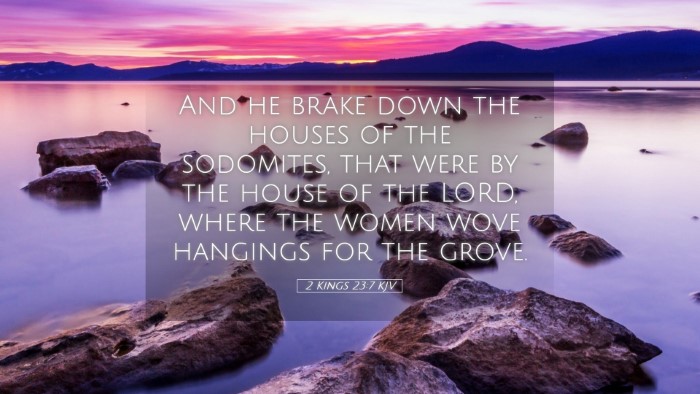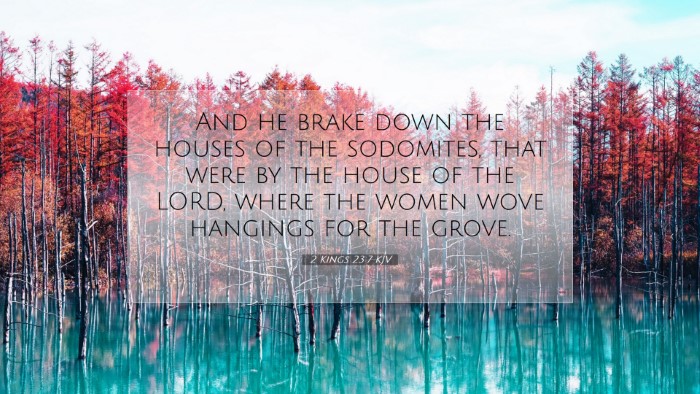Commentary on 2 Kings 23:7
Verse: "And he broke down the houses of the sodomites, that were by the house of the LORD, where the women wove hangings for the grove."
Contextual Background
This verse is situated within a pivotal chapter in 2 Kings, detailing King Josiah's reforms. After discovering the Book of the Law, Josiah undertook a comprehensive reform to revert the nation of Judah back to the true worship of Yahweh. His actions were marked by a zeal for purging idolatry and restoring the worship practices as commanded in the Law.
Historical Significance
The presence of sodomite houses (likely referring to male cult prostitutes associated with pagan worship) near the temple indicates the deeply entrenched idolatries that had taken root in the society. Josiah’s reforms were all the more significant as they not only addressed spiritual decay but also societal issues that arose from corruption and immorality.
Insights from Public Domain Commentaries
Matthew Henry's Commentary
Matthew Henry emphasizes the severity of Josiah’s actions, noting that he did not merely remove idols but also purged all influences that led people away from the true worship of God. This included dismantling the very establishments that facilitated idolatry and immorality, showcasing Josiah's commitment to restoring holiness in Judah.
Albert Barnes' Notes on the Bible
Albert Barnes provides a thoughtful interpretation of the term "sodomites," connecting their practices to the worship of Asherah and other Canaanite deities. He explores how the mention of “houses of the sodomites” illustrates the degradation of moral and spiritual fabric within the community. Barnes elaborates on how the weaving of hangings for the grove symbolizes the intersection of female involvement in pagan worship, underscoring a gendered implication in the idolatrous practices prevalent at the time.
Adam Clarke's Commentary
Adam Clarke offers a detailed analysis of the actions of Josiah, asserting that his zeal was fueled by a desire to return to unadulterated worship. Clarke underscores that the removal of these houses was not solely a physical act but a symbolic rejection of all that opposed Yahweh. He identifies the "hangings" as not just mere fabric but as instruments of pagan worship that needed to be eliminated to restore the sanctity of the worship of the Lord.
Theological Reflections
The actions in this verse serve as a vital lesson on the necessity of addressing sin within contexts of worship. For modern-day pastors and theologians, this highlights the imperative to examine what is permitted within the church and society that may lead to spiritual compromise. The cleanup of worship practices denotes a recommitment to holiness and separation from practices deemed detestable by God.
Furthermore, the connection between societal morality and religious practice is pertinent today. The ministerial responsibility includes a proactive stance in guiding congregations toward a holistic understanding of godliness that extends beyond personal piety to communal righteousness.
Practical Applications
- Examine Cultural Practices: Similar to how Josiah examined the influences in Judah, church leaders today must evaluate the cultural practices infiltrating the church to ensure they do not contradict biblical teachings.
- Call to Reform: Just as Josiah called for national reform, pastors should not shy away from preaching about areas needing repentance and change within the congregation.
- Holiness in Worship: The emphasis on pure worship should lead to creating church environments that honor God above all else, free from distractions that diverge from scriptural truths.
- Spiritual Leadership: Josiah’s actions reflect that true leadership involves courageous decisions to confront and dismantle practices harmful to spiritual growth.
Conclusion
In conclusion, 2 Kings 23:7 is a profound illustration of righteous reform as exemplified by King Josiah. It serves as a template for how spiritual leaders can address and dismantle systemic idolatry—both in their communities and within their circles of influence. The insights drawn from the commentaries encourage a holistic vision of worship that is in line with God’s desires, prompting a reflective and reformative action where necessary.


